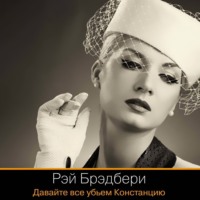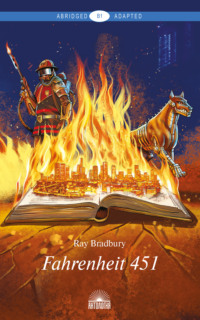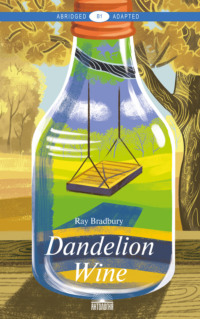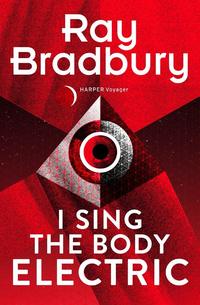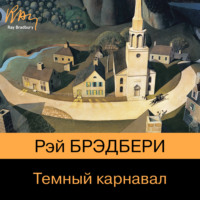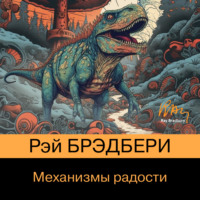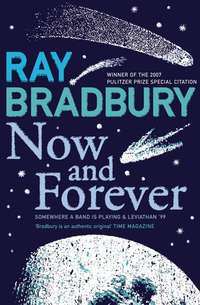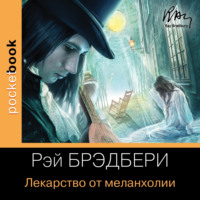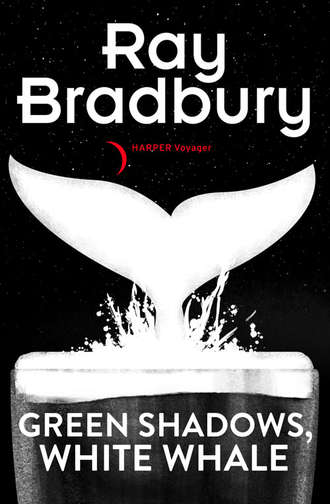
Полная версия
Green Shadows, White Whales
John loved it all.
“Always like a good scrap!” he exclaimed, his grin so wide it needed sewing. “My cash is on the lady’s nose. Tom may ride the days, but she’ll win the nights. Besides, everyone has his foibles. Tom drinks too much Old Peculier—”
“Is that a real name?”
“An English ale, uh-huh. Old Peculier. But that’s Tom. A pal, nevertheless. They’ll finish the fights and settle in for a soft marriage, you wait and see.”
“Reverend Hicks,” I said over the phone, “Tom and Lisa fight a lot.”
“Then they’ve sinned a lot!” the reverend mourned. “You’d best send them round.”
Tom and Lisa fought about going to see Mr. Hicks.
They fought going in.
They argued in front of him.
They yelled coming out.
If a voice can be pale, the reverend’s voice was pale describing the pair.
“This is not a marriage,” he protested. “It is a rematch!”
“Exactly my sentiments, Reverend,” I agreed, “but will you advise them of the boxing rules and send them to their corners?”
“If they’ll promise to stay there four days out of five. Is there a Bible chapter, I wonder? Futilities, verse four, paragraph two?”
“There will be.”
“And will I write it?”
“I have faith in you. Father!”
“Reverend!” he cried.
“Reverend,” I said.
“Well, how in hell we got into this mess is what I’d like to know!” Ricki said into the phone.
John’s voice barked back from Paris, where he was interviewing actors for our film. I could hear him loud and clear as I helped lug in the flowers and place the table for the wedding cake and count the cheap champagne in cases along the wall.
“Mess!” John yelled. “It’s no mess, by God; it’s going to be the greatest goddamn event in Irish history. They’ll start the uprising over. Are the flowers there?”
“The damn flowers are!”
“Has the cake been ordered?”
“You know it has!”
“And the champagne?”
“The worst, but it’s here.”
“Better get hold of Heeber at his pub. Tell him to bring in the best. God, I’ll pay for it. It’s time Tom scared the moths out of his wallet, but hell! Call Heeber!”
“The alien from Mars just did that—”
“Is he there? Put him on!”
Ricki threw the phone at me. I dodged but caught.
“John, I’ve finished the Saint Elmo’s fire scene and—”
“To hell with that, kid. I’ve fallen—”
“With whom?” I said automatically.
“No, no, for Christ’s sake, no woman! This is more important. Off a horse!”
“Fell off?”
“Shh! Don’t let Ricki hear! She’d cancel the hunt! I’m okay. Just some pulled ligaments. Unconscious five minutes and limping like mad. The Gimp, by God, the Gimp. But I’ll be home late today. Check the last flight from London. I rode at Longchamps at dawn two days ago.”
“I thought you were casting—”
“Sure! But the damn horse jumped when some car horn blew. I flew a mile high. I’m okay now. With a slight tendency, without warning, to fall down and writhe in agony when my back gives. Don’t let me scare you, kid.”
“I’m scared, John. If you die, I’m dead!”
“Nice sentiment. You’re the screwed-tight optimist. Just tell me I won’t fall down and writhe with Saint Vitus at the wedding.”
“Heck, you’d do it just to steal the show.”
“Why not? Hire a cab, pick me up at the airport tonight, tell me the Saint Elmo’s fire scene on the way. Can I stay in your room at the Royal Hibernian overnight? I should be walking without crutches by morning.”
“Holy God, John, crutches?”
“Pipe down! Is Ricki in the room, for Christ’s sake?”
“She went to answer the door. Wait …”
Ricki stood in the hall looking at a piece of paper in her hand. Her face was a fall of snow and her eyes were beginning to drop tears. She came and handed me the paper.
John’s voice said, “I hear someone crying.”
“They are, John.”
I read from the scribbled note.
“ ‘Alma Kimball O’Rourke fell under her horse today. She was killed instantly and the horse was destroyed.’ ”
“Omigod,” said John, five hundred miles away in Paris.
“She was the wife of the Kildare Hunt’s captain, wasn’t she?” I asked.
“Jesus, yes,” said John quietly.
I finished reading the note. “ ‘The funeral’s day after tomorrow. The entire hunt will be there.’ ”
“My God,” murmured John, growing quieter still.
“That means …?” I said.
“The hunt wedding,” Ricki said, “must be called off.” John heard and said, “No, no. Only delayed.”
Mike drove me into Dublin to find Tom, who had taken a room at the Russell Hotel. He and Lisa had fought about that too. He wanted to stay at Huston’s with her. But the Catholics and the Protestants, she pointed out, were both watching. So it was the hotel for Tom until the ceremony. Besides, he could play the stock market better, alone in his Dublin hotel room. That cinched it. Tom checked in.
I found Tom in the lobby of the hotel, mailing some letters.
I handed him the note and said nothing.
There was a long pause, and then I could see the thin transparent inner lids of Tom’s eyes, his eagle’s eyes or his lizard’s eyes or his cat’s eyes, slide down between us. They did not slam like the great gates of Kiev, but it was just as final, just as definite, just as complete. The noise his eyelids made closing, while he continued to stare at me, was awful in its silence. I was outside in my world, if my world existed at all, and Tom was inside his.
“She’s dead, Tom,” I said, but that was useless. Tom had switched off whatever batteries kept him tuned to the audible universe, to any air that held words and phrases. I said it again. “She’s dead.”
Tom turned and strode up the stairs.
I spoke to Mike at the door. “The minister? The Unitarian. We’d better go tell him.”
Behind me, I heard the elevator door open.
Tom was there in the doorway. He did not step out. I hurried over.
“Yes, Tom?”
“I was just thinking,” said Tom. “Someone should cancel the wedding cake.”
“Too late. It arrived as I was leaving Courtown.”
“Christ,” Tom said.
The elevator door shut.
Tom ascended.
The plane from London was late getting into Shannon. By the time it arrived, I had made three trips to the Gents’, which shows you how much ale I had downed, waiting.
John waved his crutches from the top of the landing steps and almost fell the length in his eagerness to get down to me. I tried to help, but he all but struck me with his implements, hurrying along in giant bounds like someone who was born and raised an athlete on crutches. With every great jump forward, favoring one leg, he cried out half in pain, half in elation:
“Jesus, God, there’s always something new. I mean, when you’re not looking, God gives you a tumble. I never fell like this. It was like slow motion, or going over a waterfall or shooting the rapids just before you wake—you know how it is, every frame of film stops for a moment so you can look at it: now your ass is in the air, now your spine, vertebra by vertebra, now your neckbone, collarbone, top of your head, and you can see it all rotating, and there’s the horse down there, you can see him too, frame by frame, like you’re taking a picture of the whole damn thing with a box Brownie working away thirty frames a second, but all perfectly clear and held in the second, which expands to hold it, so you can see yourself and the horse, waltzing, you might say, on the air. And the whole thing takes half an hour in seconds. The only thing that speeds up the frames is when you hit the turf. Christ. Then, one by one, you can hear your suspenders snapping, your tendons, that is, your muscles.
“You ever walk out at night in winter and listen? Damn! The branches so loaded with snow they might burst! The whole tree’s a skeleton, you hear the sap bend and the wood creak. I thought all my bones would shatter, shale, and flake down inside my skin. Wham! Next thing I know, they run me to the morgue. Not that way, I yelled. Turned out it was an ambulance, and I only thought it was the coroner!
“Hurry up, for Christ’s sake—I’m running faster than you are. I hope I don’t fall down right now and have one of my convulsions. You’d really see something. Flat on my back like a Holy Roller, talking in tongues, blind with pain. Wham! Where’s Tom?”
Tom was waiting for us in the Buttery of the Royal Hibernian Hotel. John insisted on crutch-vaulting down to find the American Irishman.
“Tom, by God, there you are!” said John.
Tom turned and looked at us with that clear cold sky-blue winter-morning gaze.
“Jesus,” gasped John. “You look mad. What are you so mad about, Tom?”
“She was riding sidesaddle,” said Tom evenly. “She should not have been riding sidesaddle, damn her.”
“Now, who would that be?” asked John, with that oiled and easy polite but false voice of his. “What woman is that!”
At noon the next day, Mike and I drove John out to Kilcock. He had practiced some great healthy crutch bounds and was apishly exuberant at his prowess, and when we reached Courtown he was out of the car ahead of us and half across the bricks when Ricki came running down the steps.
“My God! Where were you! Be careful! What happened?”
At which point John dropped his crutches and fell writhing in the drive.
Which, of course, shut Ricki up.
We all half-lifted, half-carried John into the house.
Ricki opened her trembling mouth, but John lifted his great glovelike hand and, eyes shut, husked:
“Only brandy will kill the pain!”
She brought the brandy, and over her shoulder he spied Tom’s champagne cases in the corridor.
“Is that crud still here?” he said. “Where’s the Dom Perignon?”
“Where’s Tom?” Ricki countered.
The wedding was delayed for more than a week out of respect for the lady, who, as it turned out, had not ridden sidesaddle but whose misfortune it was to be a small object under a more than substantial burden.
On the day of her memorial service, Tom spoke seriously of going home.
A fight ensued.
When Lisa finally convinced Tom to stay, she fell into a depression and warned of a similar trip, because Tom insisted on not ordering a fresh wedding cake and on keeping the old one as a dust-catcher for more than a full week of mourning.
Only John’s intervention stopped the fights. Only a long and inebriated dinner at Jammet’s, the best French restaurant in Ireland, restored their humor.
“Quiet!” said John as we dined. “The kitchen door as it opens and shuts, opens, shuts! Listen!”
We listened.
As the door squealed wide on its hinges, the voice of the chef could be heard shrieking in frenzies at his cooks.
Open:
A shriek!
Shut:
Silence.
Open:
A scream!
Shut:
Silence.
“You hear that?” whispered John.
Open. Shriek!
“That’s you, Tom.”
Shut, silence. Open, scream.
“That’s you, Lisa.”
Open, shut, open, shut.
Scream, shriek, shriek, scream.
“Tom, Lisa, Lisa, Tom!”
“My God!” cried Lisa.
“Dear Jesus!” said Tom.
Scream, silence, scream.
“Is that us?” both said.
“Or an approximation,” said John, his cigarillo smoking in his languid mouth. “Give or take a decibel. Champagne?”
John refilled our glasses and ordered more.
Tom and Lisa laughed so much they had to grab each other, and then their heads fell to each other’s shoulders, choking and breathless.
Very late, John called the chef out to stand in the kitchen door.
Wild applause greeted him. Amazed, he shrugged, nodded, and vanished.
As John paid the bill, Tom said, very slowly, “Okay. She was not riding sidesaddle.”
“I was hoping you’d say that, Tom.” John exhaled a long slow stream of cigarillo smoke, laying out the tip. “I was hoping you would.”
Mike and I picked up the Unitarian minister, the Reverend Mr. Hicks, the night before the great hunt wedding and drove him to Kilcock.
On his way to the car he had something fine to say about Dublin. As we drove from Dublin he had something truly excellent to say about the outskirts and the River Liffey, and when we hit the green countryside he was most effusive of all. It seemed there was no speck or seam visible on, in, or through this county or the next. Or if flaws were there, he chose to ignore them for the virtues. Given time, he would speak the list. Meanwhile, the hunt wedding lay like white lace on the morning shore ahead and he focused on it, with his pursed mouth, his red pointy nose, and his flushed eyeballs.
As we churned gravel in the yard, he gasped, “Thank God, there’s no moon! The less seen of me arriving, the better!”
“The whole town will see you through the windows tomorrow,” I observed, dryly, “holding the pagan service and fluting the blasphemous oration.”
The Reverend Mr. Hicks turned to a shape carved from a moonstone. “Find me a bottle,” he husked, “and put me to bed.”
I awoke just before dawn in a high attic servant’s room and lay conjuring the great day in the morning this was promised to be.
The theater of Ireland waited.
I thought I heard brogues below, going home late from Finn’s or arriving early for the Protestant Embarrassment.
I thought I heard the huntsman’s horn, practicing on the green rim of the world.
I imagined I heard a fox yipping in response.
There was a small shadow on the edge of the land; the hunted beast, I was sure, arriving to be first onstage.
Then, sprawled in bed, eyes shut, I conjured up the arrival of hounds in tumult and then horses, shivering their skin over their flesh, in bad need of psychologists’ advice, and none here. That was silly, of course. Horses and hounds do not arrive first. The kennelmaster must lead one and the various bluebloods rein and reassure the others. Yet I did hear blood cries and yawps somewhere in my half sleep, and the jingling of accoutrements galloped to a halt.
Not wishing to be stage director to it all, I churned over into a whimpering and talkative sleep, warning myself to burrow deep and listen not.
Only to hear John’s voice at the door to my room, as he stirred the parquetry with his crutches. “No use, kid. Time to get up.”
And the real hounds and horses arrived below.
All was in readiness. The stale wedding cake, growing more ancient by the hour, awaited. The tooth-aching and tongue-blistering champagne was laid by.
The horses were steaming the air and smiling derisive smiles in the courtyard.
The hounds were padding in circles, wetting bricks, hooves, and boots.
The lords and ladies and the owners of liquor shops all across Eire had arrived, of course, and dismounted to the nibbling smiles of horses and the suspicious protests of the hounds.
“Stirrup cups for all!” someone cried.
“That’s before we ride,” a lady corrected. “And it’s just for the groom.”
“What I meant to say is, is the bar open?”
“There is no bar,” announced the Reverend Mr. Hicks, standing so straight and correct it was obvious he had just been there, “but there is champagne, good silver buckets and bad. Beware of the shilling poison up front. Demand the pound sterling Mumm’s.”
The horses were quickly abandoned and the hounds left to harass the kennelmaster and water the yard.
The guests booted up the steps, making hollow clubbing sounds on the concrete, their faces distorted not by fun house mirrors but by ancestry alone. Time and the patient chromosome had worked their clay, bucking the teeth, rheuming the eye, elongating the lip, beaking the nose, cleaving the chin, hollowing the cheek, jugging the ears, eroding the hair, tufting the eyebrows, bleaching the eyelids, waxing the complexion, pocking the brow, and knobbing the elbows, wrists, and fingers. Some looked as if they had stood too many years inside and looking out from stable doors.
My God, I thought, what a jumble sale of skulls and ears, lower lips and high-flung eyebrows. Here danced the spider, there thundered the hippo, here the spaniel eye wet itself with Irish sunlight, there the hound mouth drooped into despairs of days when no sun rose. Not quite crayfish, a fiddle-crab liquor salesman sidled up the steps, bringing with him the eyes of Adonis locked in a face so crimson he might have parboiled himself for breakfast. Here they all came, in pink or black coats, with bloated brows, insucked nostrils, and wharf-piling jaws.
I reeled back and drifted with the clamor of boots to see elbows shoving about in the rummage for Mumm’s as against Twelvetrees bubbly.
“Who put the poison above and the remedy below?”
Instant silence followed as they beheld Tom Himself nodding his face toward the obscure-and-terrible as against the famed-and-fabulous.
“Let’s have a tasting,” someone said. “Compare old Sour Ditch to Kingsblood Royal.”
Tom could not prevent as several dozen hands emptied the tooth-destroyer to make way for Mumm’s mouthwash.
All was almost in readiness. Along with the killing wine and its cure, to one side were a few caviar sticks and cheese biscuits that Tom had laid on, while farther on, an ice floe frozen forever, the bridal cake waited for eternity.
Since it had already stalled eight days, its mesa and sides stalwart in the hours and quarter month just passed, the cake had an air of Miss Havisham about it, which, spied, was declared sotto voce innumerable times in earshot of the butlers and maids, who adjusted their ties and aprons and searched the ceiling for deliverance.
There was a sneeze.
Lisa appeared at the top of the stairs, only to sneeze again, spin about, and run back up. There was a sound of nose-blowing: the faintest whiff of hunting horn. Lisa returned, steadied herself, and sneezed on the way down.
“I wonder if this is a Freudian cold,” she said beneath the Kleenex over her nose.
“What in hell do you mean by that?” Tom scowled.
“Maybe my nose doesn’t want to get married.” Lisa followed this with a quick laugh.
“Very funny. Very, very funny. Well, if your nose wants to call off the wedding, let it speak.” Tom showed his teeth, nibbling the air much like the courtyard horses, to prove his humor.
Lisa half turned to flee, but another sneeze froze her in place. Any further retreat ceased when several crutches punched down the stairs, swinging between them in his pink coat the director as clown, the happy huntsman as lunatic gymnast. Taking the steps two at a time and swinging his long booted legs as if to project himself over our heads, John descended, talking over his shoulder and not minding where he fiddled his supports.
“It took an hour for the damned ambulance to get there; meanwhile, I twitched and snaked around and screamed so loud that windows slammed a hundred yards off. Six shots didn’t stop my yells. At the hospital, the Doc took one look, turned me over, and—crack! like a kick in the spine—the pain stopped, as did my screams. Then, by God, I began to laugh.”
Turning from John, I plowed through the champagne mob. “Get me one of those,” called John. “Make it two. Hello, Lisa, don’t you look fine, just fine!”
Lisa sneezed.
“My God, look at your nose, Lisa,” John commiserated. “So damn red it looks as if you’d been up five nights boozing!”
Lisa held to her stomach with one hand, her nose with the other, and ran upstairs.
“Thanks a lot,” said Ricki, halfway down.
“What’d I do?” John protested. “Where’s she going?”
“To powder her nose, dimwit.”
“Where’s Mr. Hicks?” said John, escaping swiftly in leapfrog vaults.
“Hello, hello!” He stopped in midhop to wave at all the windows along the back of the dining room, where two dozen or so local noses imprinted the panes.
The villagers, mad, angry, or irritated housewives, hesitated, not knowing how to swallow John’s happy salute.
A few waved back. The rest pulled off, not taken in by his apish Protestant amiability.
“Welcome, welcome!” John called, knowing they could not hear. “It’s the Hollywood sinner here, born in sin, living in sin, and soon to die, writhing, in sin. Hello!”
Some must have read his lips, for no fewer than a half dozen indignant villagers leaped back as if he had leavened the air with brimstone.
“Drink this against the day.” I arrived with the champagne.
“But will it cure at noon?” John drank.
“One hour at a time,” I said. “Where’s the reverend? Oh, there he is. Reverend!”
The reverend came from the hall, smelling of hounds and horses. “I have been out commiserating with them for partaking in this wicked enterprise,” he said, and added quickly, “Oh, not the wedding, for sure. But the hunt. Everyone seems happy. But no one has invited the fox.”
“We asked, but he pleaded business.” John smiled. “Are we ready?”
The Reverend Mr. Hicks grabbed a champagne from a tray as it passed, gulped it, and said, “As we’ll ever be.”
The lords and ladies and liquor merchants gathered, simmering with the good drinks, hiccuping with the bad—a medley of pink coats, celebrating joy; and black, promising unfaithful husbands and mournful wives.
The Reverend Mr. Hicks positioned himself in front of the glare of Tom and the dabbed-at and snuffling nose of Lisa, who peered around as if blind.
“Shouldn’t there be a Bible?” she wondered.
A Bible, the reverend almost cried out, as he searched his empty hands.
Tom scowled but said:
“Yes. While Unitarian, we are Protestants. A Bible!”
The reverend looked around for someone to fill his hands with such a useful tool, which Ricki did in great haste, wondering if it was proper.
Off balance in two ways, the weight of the thing being one, Unitarian practice another, the reverend clenched the book but did not open it, fearing that some lost chapter or verse might leap to disquiet his mind and capsize the ceremony. Placing the Bible like a brick on the lectern, an ignored cornerstone to his peroration, he lit out:
“Have you been living in sin?” he cried.
There was a still moment. I saw the muscles under Tom’s pink riding coat flex and tear themselves in several directions; one to punch, one to pray.
I saw the clear crystal lid come down over one of Tom’s blazing eyes, in profile, shutting out the dear minister.
Lisa’s tongue wandered along her upper lip, seeking a response, and, finding none, slipped back to neutral.
“What was that again?” Tom’s eyes were burning lenses. If they’d been out in the sun, the Reverend Mr. Hicks would long since have gone up in smoke.
“Sin,” said the Reverend Hicks. “Have you been living in it?”
Silence.
Tom said, “As a matter of fact, we have.”
Lisa jabbed his elbow and stared at the floor. There was an outbreak of muffled coughing.
“Oh,” said the Reverend Mr. Hicks. “Well, then.”
What followed was not a ceremony but a sermon and not a sermon but a lecture. Sin was the subject, and the bridal couple the object. Without actual circling and sniffing their hems and cuffs, the reverend managed to make everyone in the room acutely aware of underwear and of ties that choked. He wandered off the subject and then wandered back. It was sin this and sin that, sins of the lovers and future husbands, sins of the put-upon and not always guaranteed brides. Somewhere along in the hour he mislaid the ceremony. Finding it in the corners of his eyes, and in Tom’s concentrated glare, Mr. Hicks hesitated and was about to ricochet back to pure sin, if sin ever was pure, when John shortened the hour.
He let one crutch slip. It slammed the floor with a fine crack and rebounding clatter.
“Tom and Lisa, do you take each other as man and wife!” cried the Reverend Mr. Hicks.


